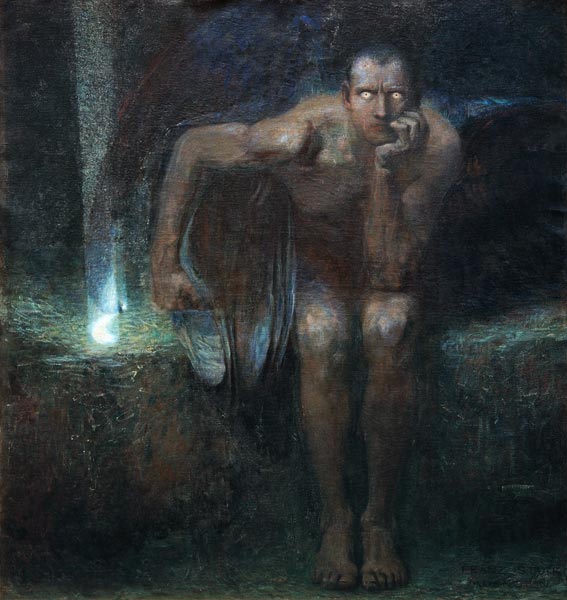Poems from Charles Baudelaires Collection of Poetry Les Fleurs du mal/3
A Different View of Evil
In part 2 of the series with poems from Baudelaire’s Fleurs du mal, it was emphasised that the meaning of „le mal“ cannot be reduced to „evil“. It is true that there are some poems in the Fleurs du mal that justify this translation. In them, however, evil is not invoked for its own sake. Rather, Baudelaire is aiming to expose moral concepts that promote evil by turning a blind eye to it.
This becomes particularly clear in the poem Abel et Caïn. In it, Cain, the murderer of his brother Abel, is called upon to complete his work and „cast God out of heaven“, since the race of Abel, despite all the privileges granted to it by God, has covered the world with war and destruction.
For the same reason, in the Litanies de Satan, the devil, as God’s adversary, is the addressee for the intercessions of suffering people. He appears more powerful, or at least more authentic, than God – who, by favouring Abel, has demonstrated his failure.
Evil as Part of the Divine Plan
Baudelaire explicitly rejects attributing evil „to the whisperings of the devil“. According to him, it is often precisely God who uses evil „for the re-establishment of order and the chastisement of wrongdoers – after having made use of the same wrongdoers as accomplices“.
As far as concrete action is concerned, evil manifests itself in the desire for destruction. According to Baudelaire, it bears witness to the fact that certain actions „derive their appeal merely from the fact that they are malicious and dangerous“ or „possess the attraction of the abysmal“.
In the poem Le revenant (The Revenant), the destructive forces are described from the point of view of the one who lustfully pursues the destruction of others. The title of the poem refers to the gothic novel, which Baudelaire was particularly familiar with through the work of Edgar Allan Poe. However, it also brings to mind forms of emotional violence through which people can put each other under pressure.
The Revenant
An angel with flickering eyes,
that’s how I haunt you in the night,
sneaking out of the sea of shadows
noiselessly into your sleep.
My kisses are as cold as moonlight,
I caress you like a snake,
secretly slithering over an abyss,
I draw you into the gloomy depths.
When the morning leadenly dawns,
my place is deserted and cold,
until the next day decays.
While others tenderly defeat you,
I use the force of fright
to conquer your youth.
from: Les Fleurs du mal (The Flowers of Evil; 1857), p. 186. Paris 1868 (Œuvres complètes / Complete works, vol. 1)
Musical setting by Mens Divinior:
Quotations:
Abel et Caïn / Les Litanies de Satan: Les Fleurs du mal, p. 329 and 332 – 334
Quotes in „Evil as Part of the Divine Plan“: Charles Baudelaire: Notes nouvelles sur Edgar [Allan] Poe (New notes on Edgar Allan Poe; 1857) Preface to Poe, Edgar [Allan]: Nouvelles histoires extraordinaires (New extraordinary stories) [19 pages in four sections]; here: first section. Paris 1884: Quantin.
Picture: Franz von Stuck (1863 – 1928): Lucifer (1890); Sofia, National Gallery of Fine Arts (Wikimedia Commons)


Hinterlasse einen Kommentar